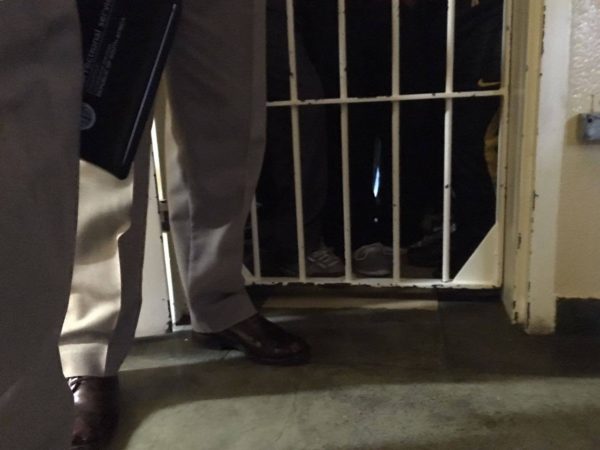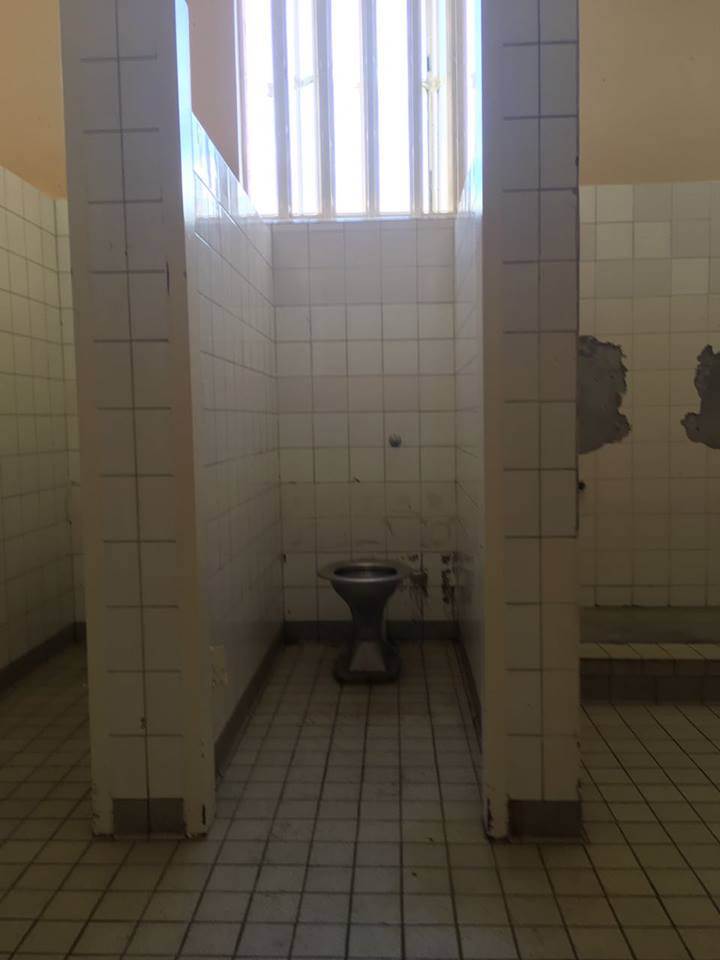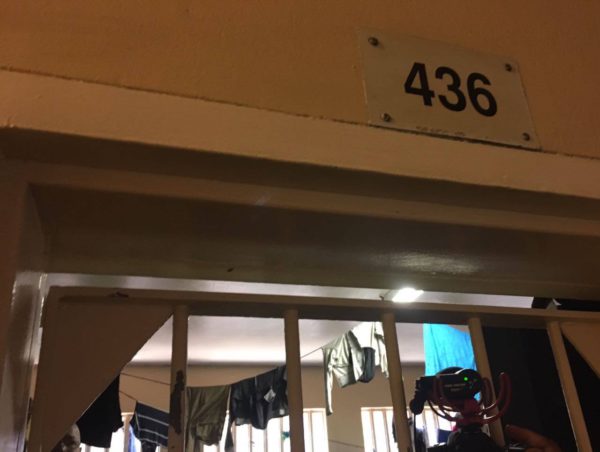By Melanie Sauer
The inmates of the Pollsmoor Correctional Centre have seen a turnaround of the previously “unlawful” living conditions, in just a matter of months. But upon VOC News inspection of the prison yesterday, it is clear the Department of Justice and Correctional Services has a long way to go to implement these improvements, as ordered by the Western Cape High Court in June 2016.
The Acting Minister of Justice and Correctional Services, Honorable Faith Muthambi, visited the Pollsmoor Correctional Centre on Wednesday, to provide a progress report on the prison, which came under fire from the Western Cape High Court late in December 2016.
The court ruled that the government had “failed to provide inmates…with exercise, nutrition, accommodation, ablution facilities and healthcare services” that were compliant with the Correctional Services Act 111 of 1998. During the trial, scathing reports of the facility were revealed, including showers being used as sleeping quarters, and a rat-infestation that led to the evacuation of thousands, and the death of two inmates.
“The most important issue is that there is simply not enough space at Pollsmoor,” said Judge Saldanha, suggesting that detainees needed to either be moved to other facilities or additional prisons to be built.
The department has responded swiftly to reduce the “overcrowding” of the centre, and as of Wednesday morning, had almost halved their population.
“I must indicate that we have managed to, as of (Wednesday) morning it was at 161%, which translates to only 188 offenders more,” says regional commissioner, Delikile Klaas.
A result achieved predominantly by transferring detainees to other correctional centres across the country, including the Northern Cape (1,000), Eastern Cape (500), and Gauteng (500) provinces.

Klaas also said the department were implementing alternative sentencing for “less risky” offenders, such as a bail amount of R1,000 or less, as a longer term method to controlling overcrowding.
Reduction in overcrowding has had a significant impact on other living conditions, and while the centre is yet to comply with meal-related directives, inmate access to health services, physical activity and cleanliness has improved considerably, according to Klaas.
Detainees at the Pollsmoor Correctional Centre, are now able to exercise 4 days a week, have access to a doctor, and are given clean blankets upon arrival. Due to resources, only two meals are provided a day – breakfast, and combined lunch and dinner.
However upon VOC News journalists visiting a section of the prison, it is clear that the inmates would not agree.
“Many people sleep on the ground. No seats here, we sit on the ground. Even the food they give you is crap. We’ve got one toilet, which is broken. The basin is broken. Every time you complain they say they’re going to fix it. Then it takes them two months to fix it. We’ve even got lice here, a whole pot of lice,” says one inmate.

The inmate spoke to us from his cell, which is designed for 25 people, but currently houses an additional 11 people. This means that this cell alone accounts for 6% of the inmates (188) contributing to overcrowding. This does not seem logical.
Last year, this cell had an occupation of around 60 people. So while there has been an improvement, it is evident there is a long way to go.
While acting Minister, Muthambi, admits that the infrastructure is not in alignment with the South African constitution’s Bill of Rights, saying the prison was “built during the apartheid era”, there was no mention of plans to tackle infrastructure directly.

Deputy Minister, Thabang Makwetla did talk about cross-collaboration.
“Overcrowding must be viewed in context. The department (sits) at the bottom end of the chain of many other departments (that require performance adjustments),” says Makwetla.
This was supported by a warden who blamed the postponement of trials for the overpopulation of the prison.
“The problem (overcrowding) is something that our society is confronted with (and) the real, lasting solution is to have citizens who are law abiding,” said Makwetla.
The final report on the status of the centre will be submitted to the Western Cape High Court on 30 June 2016, at which point the department is confident they will be compliant with all directives outlined by the court. While it unclear whether the correctional centre will be subject to further review past this date, it appears that even Makwetla himself acknowledges that the temporary reduction in overcrowding is not a long term solution. VOC










